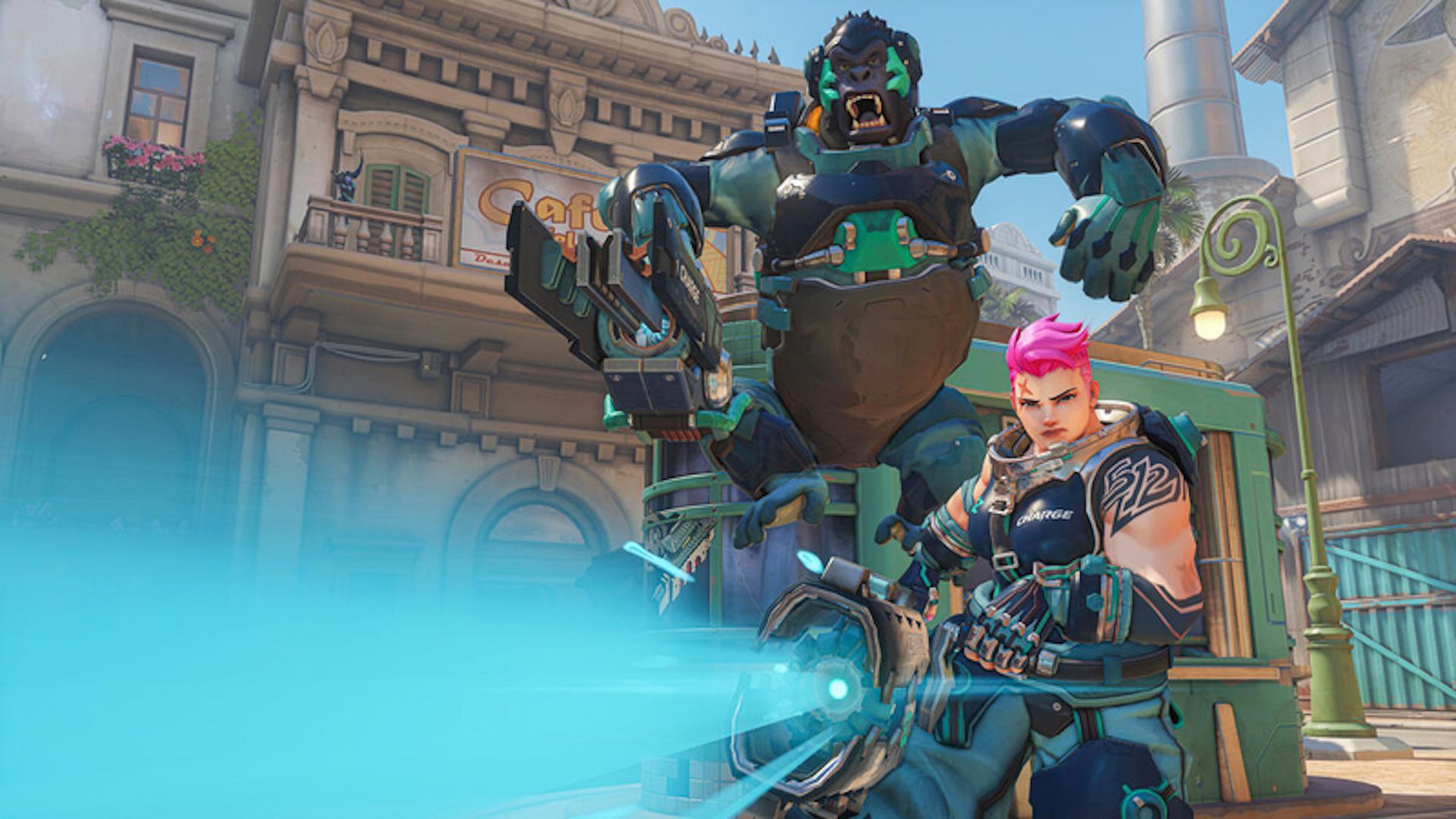Activision's uncertain esports future
Add Axios as your preferred source to
see more of our stories on Google.

Overwatch League action. Screenshot: Activision Blizzard
Microsoft and Activision executives said plenty about the so-called metaverse as they promoted yesterday's planned video game mega-deal, but little about another recent gaming buzzword: esports.
Why it matters: Esports may be big, but Activision's portion of it hasn't dominated the way its Call of Duty games have in the traditional gaming marketplace.
- The company points to rising viewerships for both of its leagues, including 11.9 million viewers for the 2021 season of its Call of Duty League and a 57% rise for Overwatch League on YouTube and Chinese video platform Bilibili.
- But the leagues are drawing fewer eyes than events that feature comparable games, such as Riot's Valorant or Valve's Counter-Strike GO.
- This is despite years of investment and the wooing of billionaire sports team owners like Robert Kraft and Stan Kroenke to pay $20 million franchise fees to start their own league teams.
What they’re saying: "I think that their esports idea was half-baked and has always been directionally wrong," Wedbush analyst Michael Pachter told Axios.
- Activision Blizzard CEO Bobby Kotick's "mistake," Pachter said, "was that he presumed that because Call of Duty and Overwatch were popular games, there would be huge viewer interest to watch them as esports (not true)."
- Pachter also knocked the company's esports model, which he said nets Activision half of the league's ad revenue on top of franchise fees, making it pricey for franchise operators to run.
- The business generates $100-$250 million a year, he estimates.
Between the lines: Part of what has kept esports a going concern at Activision is Kotick's relationships with rich team owners, said journalist Jacob Wolf, who broke scores of top stories about the company’s leagues and now runs production company Overcome.
- "Kotick's cult of personality attracted billionaires and ultimately maintaining those relationships always felt like a top agenda item when discussing the leagues," Wolf said.
- "I think, especially with the Overwatch League, there's worry about ever making a return on investment. Some of the optimism behind the scenes seems more like denial."
- The key question to ask, Wolf said, is "How will Microsoft view taking a very expensive loss on those projects?"
What's next: Neither Wolf nor Pachter believe the Microsoft acquisition will end Activision's leagues, but they expect new thinking at the top.
- "It's a rounding error for Microsoft [officials], and while I don't think they will abandon the business, I'm skeptical that they will adopt the same model for other games," Pachter said.
- He expects Microsoft to use esports as some other big publishers do — not as a sport but as marketing for their games.
- Wolf noted that Microsoft is "clearly making a push" to make its own Halo franchise an esports contender again, but said that's only "after botching its esports product for years."
Editor's note: This story has been corrected to include Stan Kroenke, not Jerry Jones, as a billionaire sports team owner to pay $20 million franchise fees to start league teams.
